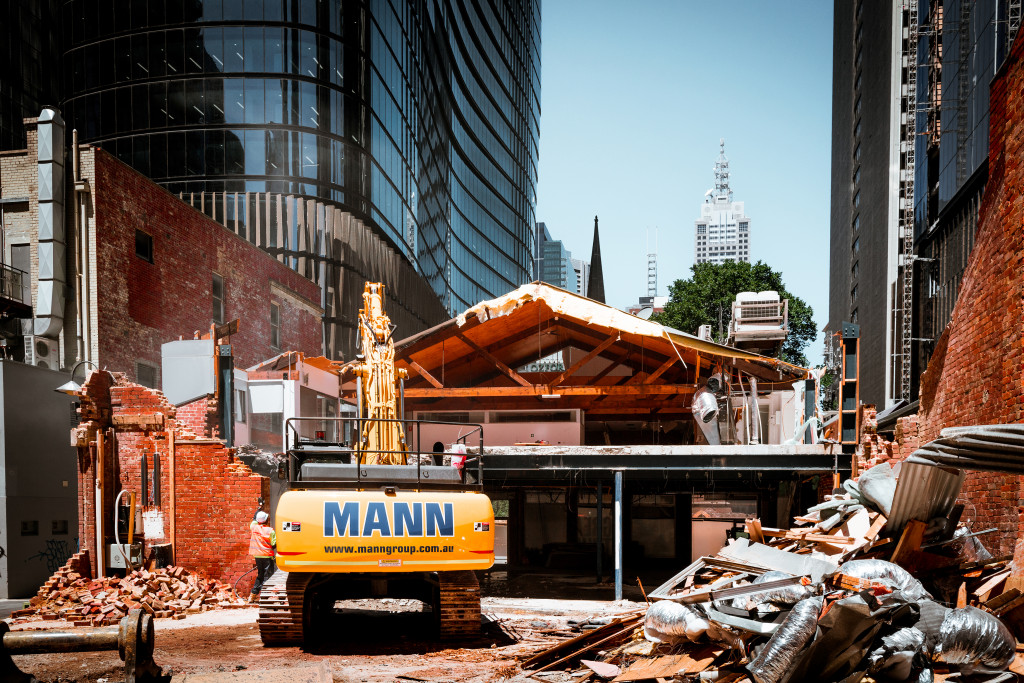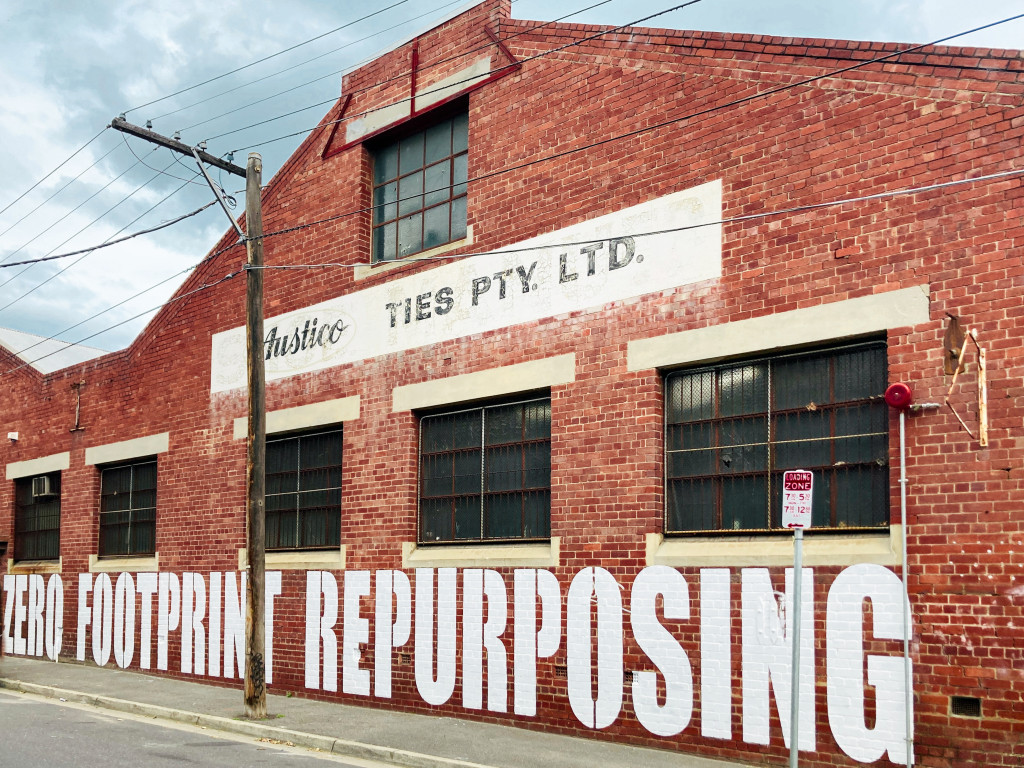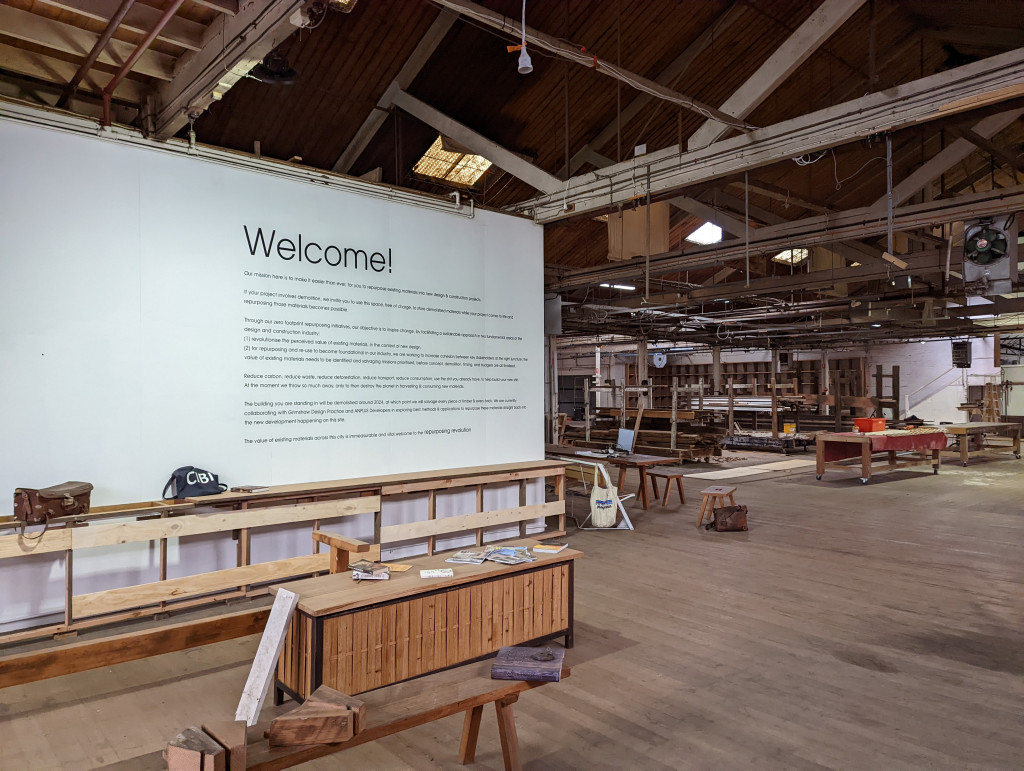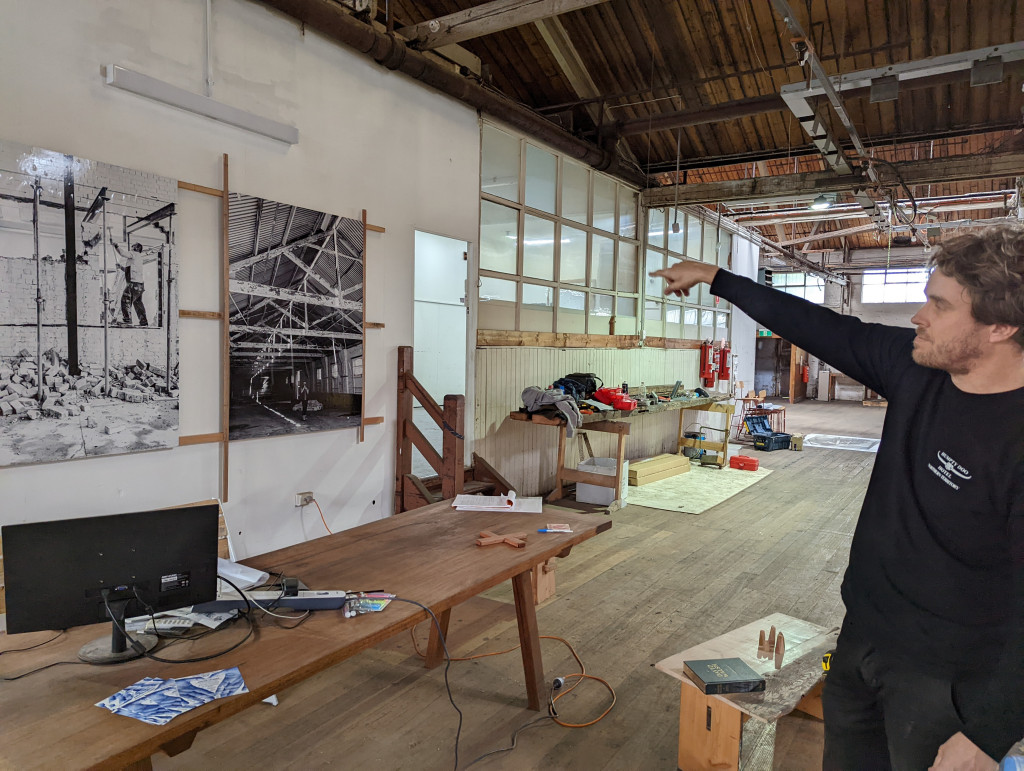Making Good with Revival Projects’ Zero Footprint Repurposing Hub
The value of a design is not only judged through its functional or aesthetic impact, but also on its environmental imprint. Design is judged on its ability to ‘make good’. Making good is one of the pillars of Melbourne Design Week in 2022, and the construction industry is under the lens, because, despite the obstacles of the pandemic, Australia’s construction industry is booming – and along with this growth comes unprecedented amounts of waste.
In 2018–19, the construction and demolition industries generated 27 million tonnes of waste material – bricks, timber, concrete, metal and more – that accounted for an enormous 44% of all managed waste in Australia. According to the Department of Agriculture, Water and the Environment’s National Waste Report 2020, that’s a 15% increase on the previous year. Much of it goes into landfill, while the rest is either dumped, stockpiled, recycled or reused.

It’s the last two options that drive Robbie Neville, founder of Revival Projects – a Melbourne-based building practice aimed at making sustainable construction alternatives more accessible to everyone. For Melbourne Design Week, Revival Projects will host an event highlighting just that.
“With the construction industry being so commercially motivated, more often than not the quickest and cheapest options win out – that means demolishing buildings, then bringing in new materials to build the new ones,” he says.
“Our cities are full of materials that are just being thrown away.”
Robbie would know. Since starting Revival Projects in 2016, he and his team have salvaged tonnes upon tonnes of construction and demolition waste across Melbourne and channelled it into furniture, interior and architectural projects of all shapes and sizes. But what sets Revival apart from other repurposing initiatives is the sheer scale of its ambition. It’s not just about tokenistic applications of salvaged materials: as a small team of licensed builders, structural engineers and furniture designers, Revival has uniquely positioned itself to change the way construction companies, developers and architects conceive of waste in the early design stages of major projects.

The birth of the Zero Footprint Repurposing Hub
In 2020, Revival Projects negotiated a 12-month lease in a South Melbourne warehouse courtesy of developer Perri Projects. Just next door, Robbie had worked on a major demolition and salvage mission with Hip V. Hype, who were heading up the development of a Six Degrees Architects-designed block of 22 apartments on the site.
“This was a turning point for Revival, because it’s the first time we’d set up a workshop inside a development like that. It enabled us to work closely with the developer and other stakeholders to salvage 100% of timber from the original site,” says Robbie.
And so the first iteration of Revival Projects’ Zero Footprint Repurposing Hub was born.
From the South Melbourne site, Robbie and his team were able to funnel 2,000 linear metres of salvaged timber into all manner of projects, among them the interior fit-out for a whiskey bar 500 metres down the road; a ceramics studio in Brunswick; a burger shop in West Brunswick; and over 30 private furniture commissions. During their tenancy, Revival also held onsite furniture-making workshops geared at women looking to break into the industry.
Next stop: Collingwood
Later in 2020, Robbie met with Grimshaw Architects, who he’d heard were designing a multi-storey building on a former textile warehouse on Islington Street in Collingwood with property developers ANPlus Developments. Impressed with what they were doing in South Melbourne, ANPlus agreed to lease Revival the warehouse for two years. In 2021, Revival moved in and transformed the space into their new home – and their second Zero Footprint Repurposing Hub.
Just shy of 100 years old, the roof of the expansive Collingwood warehouse features an impressive series of single-span, 20-metre old growth timber trusses. Robbie says it’s most likely they came from trees in Canada or North America.
“For trees like that to grow to that length, that’s hundreds of years. Then they would’ve come by boat all the way to Australia, possibly to Geelong or Port Melbourne, then carted all the way to Collingwood. It’s insane these trees were cut down in the first place. With all that history, you can’t just throw them away – but so many people do.”
For the duration of their tenancy in Collingwood, Revival is working closely with Grimshaw to take stock of all existing materials onsite, with the intention of putting 100% of them back into the single new development.
“We’re pushing the boundaries of ‘zero footprint’ thinking even further with this project, so that from demolition through to repurposing and installation, the salvaged materials will have never left the site,” says Robbie.
“Ultimately, the repurposing of these materials should never be an afterthought. The existing warehouse will be demolished in 2024, and we aim to have a plan for every piece of viable material before then.”

Making waves, making good
In November 2020, Revival Projects became the only commercial builder in Australia to have B Corp certification. “Revival was always set up as a purpose-driven business. From the very beginning I always knew I wanted it to be a B Corp,” says Robbie, adding that the accreditation helps to both legitimise Revival’s business and to raise awareness of their large-scale, zero-footprint approach to construction waste.
During Melbourne Design Week 2022, Revival Projects and Grimshaw will open the doors to their Collingwood warehouse for the public to experience in person. Visitors can learn more about the materials stored onsite that have been supplied by FJMT, Perri Projects, Beulah International, Edition Office, BAR Studio, Hip V. Hype, Kerstin Thompson Architects, Assemble Communities, Grimshaw Architects, ANPlus Developments and Bayley Ward Architects among others. This includes discovering how designers, builders and clients can work together to revolutionise the industry’s approach to repurposing. There will also be a panel event on the premises, featuring Robbie along with speakers from Grimshaw, Hip V. Hype and Assemble Communities.
“A huge part of Revival is making what we do accessible to the public. The more people that come through these doors, the more people we can get on board with our ideas, and hopefully change starts to ripple outwards from there.”

Revival Projects’ repurposing hub is open on Friday 25 March for Melbourne Design Week. More information is here.
Latest Posts
20 April 2022
3 March 2022
25 February 2022
22 February 2022
18 February 2022
14 February 2022
